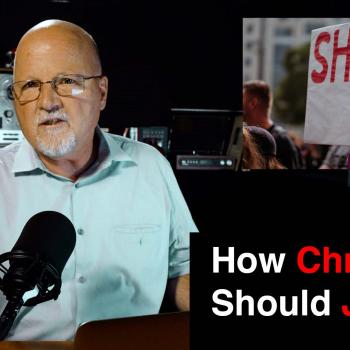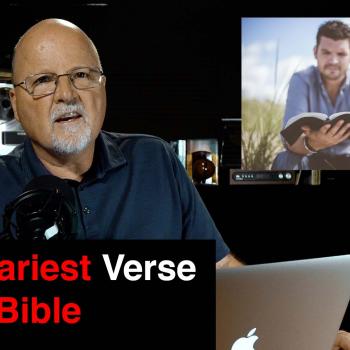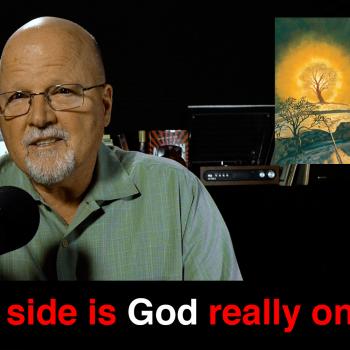My Daily Walk – What Is Theology?

My Daily Walk is a podcast with a Holywood personality who records a podcast when he goes for a walk. What Is Theology? I think it’s fair to say a large percentage of the people listening to this believe in God, or claim to believe in God, and live as though there is one. And maybe some people listening to this don’t believe in God yet live as though there is one.
I don’t believe in God, but I live as though I do. Those are the actual first words of a friend of mine the first time we sat down for coffee. I had met him at a pub. We kind of hit it off and decided let’s go have coffee. And I don’t know why he said… started with that, but he did. And that’ll be today’s topic. Good morning and welcome to My Daily Walk. The podcast where this anonymous Hollywood guy walks around and talks. He walks and talks, and talks and walks, walks the walk, and talks the talk. That’s the attempt.
This is day three, and I’m trying something different today. I’m trying a different time of day. What’s been happening is, walking where I walk, I am surrounded by many, many distractions. And it’s just a neighborhood, but at a time of day that I have been walking, there’s just too many distractions, noisy distractions, so I picked a different time of day, and we’ll see how today goes. It’s 5:40 in the morning, and we’ll see how fresh my mind is. Let’s see if I can stay on topic and have fewer tangents, less distracted, less frenetic. Who knows? But we’re going to take a stab at that.
The format of this podcast is hopefully something that peaks your interest right up-front. A topical question, phrase, statement, or part of a story, which we’ll get back to before the end of this 30 minutes, but I want to review the previous day’s subject. Perhaps finish a thought I didn’t finish and then launch into the new topic. I have no idea if this will be interesting at all to anyone. It’s half experiment, half personal journal, and half… Wait, that’s three halves. You can’t have three halves. Break it into thirds. That third part would be a monologue to my mom. If no one else listens to this, I guarantee my mom will. So hi mom.
So, yesterday, hate. Well, the topic I wrote down for yesterday’s topic was loving your enemies. I don’t think I ever actually stated that. But who is an enemy? What is an enemy? Really, that is a topic that I will revisit again and again. But what does it mean to have an enemy? What does it mean to love an enemy? Well, at times it’s one way. Somebody hates you, and you don’t hate them, and actually I think that is a best case.
Well, one thing I was going to say yesterday that I didn’t get to is that some people don’t… You might not be able to think of an enemy. They may not have an experience with anyone, at the front of their mind at least, that comes to mind that would qualify. Or some people are just so busy with life, or happy, or engaged that they would have to sit long and hard to think of an experience they had that would give them a clue that they might have an enemy somewhere in this world or have had in the past.
The fact is every single one of us, if we were put in a room with… I didn’t start that sentence correctly. There are people currently walking this planet, that no matter who you are, if you were put alone in a room with them, they would want to kill you. They would want to kill you. They don’t know you. I won’t elaborate, but there are people on this planet. There’s this thing called blood lust, and that’s going to be a topic. That’ll be a topic. When I’m making a list of topics, I’ll just add it to my list hopefully if I remember.
But every single one of us, every human, has an enemy. And for the most part, we won’t ever confront that enemy. We won’t ever be in that scenario. We won’t ever have to be alone in a room with someone who wants to kill us, but the fact of the matter is you have an enemy that would kill you. That’s the reality. The planet we live on. There are people that would kill you at the first chance if they had it. Okay. So with that being the case, how do you love a person like that if you don’t consider a person an enemy, yet they consider you?
Well, I didn’t cover it yesterday as a part of yesterday’s topic, so just email me if you really want me to get back to that. You will have the email address by now when I started recording. I don’t know how far into these recordings. This is the third consecutive day. But I do not yet have an email address, but by the time you hear this, I will, and it will be [email protected], so email me if you want me to talk about loving your enemies again. It’s a eternal topic. All right. So there’s part of my intro and a visit to the previous topic.
Well, let’s get to today’s topic. How did I start? I don’t believe in God, but I live as though I do. Those were his words. I sat down. I was there first, and then he sat down, and it was literally the first thing out of his mouth, and it wasn’t a conversation starter. He wasn’t even saying it to me per se. It came off as just a thought that was under his breath. Not really under his breath, but he said it out loud, wasn’t looking at me, directed at me.
And since then, I’ve heard that phrase again. And because I’ve heard it again, I don’t know that he was saying it from his heart as something that he actually believes or if he had heard it and was just repeating it and applying it. I don’t know. I mean I hadn’t even broached the topic of theology with him, and I still don’t. I mean it’s not a topic that we’ve ever wandered into though he did say recently in passing that he’s wanting to study like scripture, or I don’t know if he said the Bible or if he said Christianity. Interestingly, I mean we’ve never talked on that topic. He just brought it up that first time and then recently saying he’s interested in studying it. So I don’t know.
The guy, I met him a year ago. We’ve become very, very good friends. I mean he’s a brilliant guy. He’s young. He’s mid-thirties. Had his share of life trauma and been adversely affected by it. Yet, at least to this point, has not been destroyed by that adversity. In fact, it’s shaped him into quite a resilient fellow.
He has certain capacities that would categorize him as genius maybe. I mean when he starts talking about the things that he… Like the work he does, his interests, his profession, he talks to the level that I’m barely able to keep up, but I am able to track. I’d say 70% to 80% when he really digs down into the nuts and bolts of what he does, I’m able to track with him which surprised me because it’s a field that I have no experience in, yet much interest at least what he’s doing.
So I’m sorry I’m teasing. I’m not going to tell you who he is. You know some day you may find out. It’s not like he’s famous or anything. I’m just saying I am not going to be revealing people’s identities here. He’s a friend of mine. But that beginning of our coffee comes back to me.
I think that sentiment is more universal in Western culture at least. I don’t know, maybe in every culture, but certainly in Western culture that has been shaped by the Judeo-Christian ethic, the Constitution of the United States. You know, we hold these truths to be self-evident that we are endowed by our Creator.
Okay, so self-evident. In other words, the very founding of the most powerful nation ever to exist on the planet. That’s not arguable. Some people hate America, some people love America, but the fact is the most influential and powerful nation ever to exist began with those words: self-evident. That we were created in a certain way which simply assumes a Creator.
And so today’s topic is theology. What is theology? Well, we all have one. And atheism is a theology. Agnosticism is a theology. It’s a study of God. Even if you’re not studying, you’re walking around… well kind of hinting at our first topic… talking it out, talking to yourself, talking to others. And a lot of people don’t really look into it, as to what theology makes the most sense. And that’s not my topic to go into every theology.
But why would you say you don’t believe in God, but you live as though you do? Is that hedging your bets? Is it, well, just in case? I think there’s a philosophical phrase for that. You know live right just in case you’re wrong. You don’t believe that there’s a God, but just in case. I mean well then there’s the question of, what does it mean to believe in God? And that word belief, oh, my gosh.
In a world, in an era of sound bites, where you’ve got just a few words to capture people’s attention and get a point across before they move on, their interest wanes quickly, and let’s jump to that next thrilling piece of information or something. So just say, “Do you believe in God? What do you believe?”
And the fact of the matter is people say things that they don’t mean all the time. People open their mouth and just say what they… There’s any number of categories of what people say. And they say things that they learned and just took at face value because they never heard an alternative, never heard anybody propose a second or a third point of view about said subject, and they learned it from a person that was supposed to be an authority in their life. A teacher or a parent, even a pastor or a celebrity, someone they look up to. And so a lot of people just repeat back things that they have heard from people they respect, or people that they trust, or people that they like. And so is that belief? If you are repeating back something that you really have just heard someone else say, is that belief, or adoption, or indoctrination, or parodying?
But some things do resonate true. Even if you haven’t heard an alternate theory, somethings just ring true. And so that could be the case and is in many cases the case. If you hear two plus two equals four, you don’t an alternate point of view on that. That rings true. There’s a point in all of our development where we may have to wrestle with that. Obviously the two plus two was a ridiculously simple example, but any mathematical equation and anybody who understands math and things that math proves. They’re called proofs.
Once you’ve reasoned it out and seen the logic, seeing is really believing. Right? You see it in your mind. You see it rationally, logically, and so once you do see it, you don’t unsee it. It’s there, and it becomes belief. It just becomes knowledge. And that’s the case every day, in everything we do. We look at people’s behavior and deduce. Sometimes we come to hasty conclusions of why somebody did something, but we’re all doing our own assessment of the human condition and of theology because it’s just in our nature.
We all believe something about how we got here and about where this whole thing is going, and the bottom line is the vast majority of humans walking the planet do believe in God. Those who say, “I don’t believe in God” are a small minority. Now, majority doesn’t rule. That’s not a principle that I adhere to, majority rule, because there’s plenty of things where a small group have put forth a contention and argued for it and been proven to be true, and then that thing that wasn’t believed by the majority gets adopted and is ultimately believed by the majority. But there’s plenty of cases where things that are true are still not believed by the majority even though they’d been proven, and let’s not go down that rabbit hole. So to say that most humans believe in God is not proof necessarily of the truth of the premise, but it’s a factor to take into consideration.
Some might argue, well, the smartest people on the planet don’t believe in God. Well, that’s actually not true. You might say that the percentage of those with higher education believe in God diminishes and goes down. You survey scientists or PhD that there is a… I don’t know where the cutoff is, where it goes from 50% down to 10%. I don’t know the ratios. I haven’t looked at statistics. I just know this. This is an extemporaneous podcast. I’m not doing research work. I’m reflecting on things that I know and recall. And there’s an email address for you to correct me. Just look in the description. The email address is there even though I don’t have it yet.
Anyway, getting back to the topic. There are brilliant physicists who believe in a Creator. I’m not going to talk about percentages here because I don’t know, but I personally know a guy who’s working on dark matter. He has a grant and works at one of the top universities in the world. A grant to work on dark matter, and the project he’s working on with… I don’t know how many people are with him. But they will likely be nominated for a Nobel Prize in physics.
It’s not bragging. It’s just the fact. That people that work on this kind of stuff will probably be entered into… Usually they have to wait for the results of their study. And if their premise comes out to be true, they make a discovery that contributes to the body of knowledge. Whichever one of those contributions in that round of Nobel Prizes, whichever of those contributions makes the greatest… You know is the greatest breakthrough, knowledge, whatever. I’m speculating here, but that generally wins the Prize.
So he’s going to be in that echelon. He’s already in that echelon of thinkers. His mind thinks in terms that the majority of the human population couldn’t even grasp. That’s the level this guy’s on, about the nature of the physical universe. And that guy is an ardent believer that it was all created and designed. So that notion that those who are more educated tend to lose their faith or tend to not believe in God, it doesn’t hold… I mean a guy like… And this guy’s not alone. There’s lots of scientists and critical thinkers that are in the same place that he is.
So what does it mean to believe? And then why would you live as though there were one? Well, to me it makes sense to live as though there were a God because it just… Sorry. I suppose you have to break it down. What kind of God? Because there are different versions of God, and so he’s assuming when he says that, and I… He’s assuming the Judeo-Christian interpretation of what this God would be like. And that means justice. That humans have unique value. The image of God, humans being created in the image of God is kind of a foundational principle of that worldview. It’s something radical.
What does that mean, the image of God? Well, we’ll do a topic on that. I may already have that written down. What does it mean, the image of God? But some of that is that we have value. We’re creative. We should be regarded and respected. I mean the bottom line you might say… Okay. I’m going to go on a quick tangent. How much time do I have left? Okay, three and a half minutes.
First of all, I do like this. I’ve been less distracted. Perhaps I’ve not been as articulate, but I think I’d been able to stay more on topic walking at 5:30, 5:45 in the morning, whatever. So I’m going to maybe try and keep this up. I haven’t seen as many… Well, certainly nobody walking their dogs at this time of the morning, but I also haven’t passed any other pedestrians. I did turn around because I saw a pair of people walking toward me. Anyway.
I think it’s fair to say a large percentage of the people listening to this believe in God, or claim to believe in God, and live as though there is one. And maybe some people listening to this don’t believe in God yet live as though there is one. I think the worst case scenario is to not believe in God and live as though there is not one. Because I don’t care how many people say yin and yang, like you can’t have good without evil. You can’t have light without darkness. I think that’s nonsense. I mean it’s patently nonsense. It’s just nonsense. Existing, mere existence is good. Is a good thing to exist.
Let’s just put it this way. In the beginning, God created all things, and then he created all the animals. He created trees and et cetera, and then he created man and woman, and said, “This is good. It is good, very good.” And then he stopped creating. Now regardless of what you think of that story, science will back it up too. Humans are the last thing created or evolved. You know we’re the capstone thus far. God didn’t go on and create something better than a human and say, “Well, humans are very good, and this thing is really, really, really good.” And evolution doesn’t say, “Well, beyond man there’s been this even more advanced thing.” I mean that’s science fiction. That’s alien life speculation, et cetera.
So goodness. What is good can exist without evil. And so living as though there was a God is I think doing good. Doing what’s right. We all know getting up and making your bed, and going to work and kissing your kids, or that respecting other human beings, smiling, making eye contact, going out of your way to help someone else, that’s living as if there was God, whether you believe in God or not. The mere fact of common courtesy. Why? Have we been socialized just to treat each other with respect? Or is this golden rule thing just something we know in our core? Do onto others as you’d have them do onto you. That’s living as though you believe in God.
An original podcast by Christian Podcast Central












